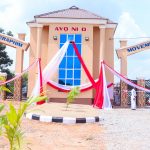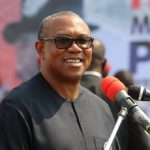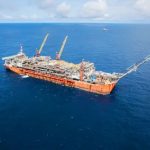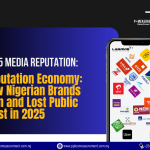General
FG Confirms Sponsoring 422 Delegates to COP28
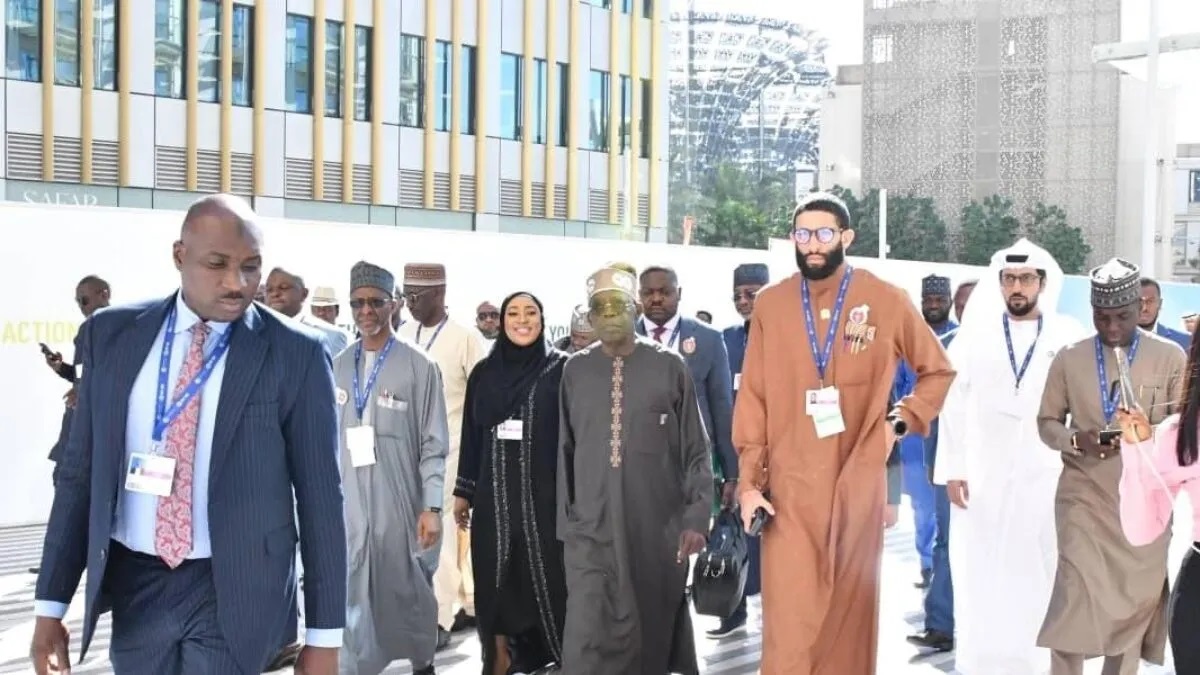
By Adedapo Adesanya
The federal government has announced that only 422 of the total 1,411 Nigerian delegates at the ongoing COP28 were funded with taxpayers’ money.
This clarification followed the outrage over the size of Nigeria at the conference in Dubai, the United Arab Emirates (UAE).
The Minister of Information, Mr Mohammed Idris, disclosed this in a statement on Monday evening amidst concerns by Nigerians about the large number of the country’s delegates at the climate change conference in Dubai.
Business Post had reported that Nigeria was joint third with China behind the UAE and Brazil among all the countries present at COP28, and this had sparked reactions from citizens.
Out of the total 1,411 Nigerian delegates, 821 have the “Overflow” badges, while 590 were approved to carry the “Party” badge.
However, Mr Idris claims that not all the Party delegates were government-funded.
He said the 422 government-funded delegates were from seven broad institutions, including the Presidency which has 67 delegates.
Giving a breakdown he said, the Presidency took 67 delegates, while the office of the Vice President had nine representatives, and the National Assembly accounted for 40.
Others include the National Council on Climate Change with 32 berths, the Federal Ministry of Environment with 34, all ministries with 167 and Federal Parastatals/Agencies with 73 candidates.
Read the full statement by Mr Idris below.
Press Statement
RE: NIGERIA AT COP-28
The Federal Government has noted with interest the public conversation on the number of delegates from Nigeria attending the ongoing Climate Summit in Dubai, otherwise called COP-28, and the need to provide clarity in line with a standing pledge to conduct itself with transparency and accessibility regarding public information.
The Convention of Parties (COP) to the United Nations Framework Convention on Climate Change (UNFCCC) is the world’s pre-eminent Climate Change Conference, attended this year (COP-28) by more than 70,000 participants and delegates from over 100 countries. Nigeria’s representation is very much in line with our status as Africa’s leading Sovereign voice and player in climate action.
Parties to this Convention from Nigeria include government officials, representatives from the private sector, civil society, the voluntary sector, state governments, media, multilateral institutions, representatives of marginalised communities, and many others.
It is imperative to point out that the overall Nigerian delegation to COP-28 comprises Government-sponsored (Federal and State Governments) and non-government-sponsored participants (from Private Companies, NGOs, CSOs, Media, academia, etc).
The Federal Government-funded delegation is made up of a total of 422 persons, as follows:
1. National Council on Climate Change = 32
2. Federal Ministry of Environment = 34
3. All Ministries = 167
4. Presidency = 67
5. Office of the Vice President = 9
6. National Assembly = 40
7. Federal Parastatals/Agencies = 73
As the biggest economy and most populous country in Africa, with a substantial extractive economy and extensive vulnerability to climate change, Nigeria has a significant stake in climate action, and our active and robust participation at COP is therefore not unwarranted.
COP-28 presents an array of investment and partnership opportunities for the various sectors affected by climate change, and Nigeria is already benefiting from its ongoing participation, as demonstrated by the following:
1. Nigeria and Germany signed an accelerated performance agreement to expedite the implementation of the Presidential Power Initiative (PPI) to improve Nigeria’s electricity supply. The agreement was signed by Mr. Kenny Anuwe, the Managing Director and CEO of FGN Power Company, and Ms. Nadja Haakansson, Siemens Energy’s Senior Vice President and Managing Director for Africa, at a ceremony witnessed by President Tinubu and Chancellor Scholz.
2. President Tinubu hosted a high-level meeting with stakeholders and investors on the Nigeria Carbon Market and the Electric Buses Rollout Programme on the margins of the COP28 climate summit.
a. The President unveiled the Nigeria Carbon Market Activation Plan, co-chaired by the Executive Chairman of the Federal Inland Revenue Service (FIRS), Mr. Zacch Adedeji, and the Director-General of the National Council on Climate Change (NCCC), Dr. Dahiru Salisu.
b. The Electric Buses program is only the first step in a series of innovative, clean, modern, and sustainable initiatives across diverse sectors, all aimed at simultaneously addressing climate change-related challenges, reducing carbon footprint, modernizing infrastructure systems, and positioning Nigeria as an attractive destination for global investments.
3. Nigeria stands to benefit from the Loss and Damage Fund established during COP-27 in Egypt and formally operationalized at the opening plenary of COP-28 in Dubai. The Fund will provide substantial non-debt financing to support countries most affected by the impact of climate change. Hundreds of millions of dollars have already been pledged as contributions to the Fund.
4. The President also met the President of UAE to concretize engagements between the two countries. This is aside from the bilateral talks held with several countries and multilateral partners.
It should be highlighted that, over the years, Nigeria has firmly demonstrated its climate action credentials by being the first African country to launch its Energy Transition Plan, the first African country to issue a Sovereign Green Bond, and one of the first to pass national climate change legislation.
President Tinubu has been unequivocal in his position that Africa, which is battling problems of poverty and security and struggling to provide education and healthcare to her people, cannot be told to abandon its primary source of income, which is mostly from extractive industries, without the West providing the funding and investment in alternative and clean energy sources.
Since assuming office, President Tinubu has been a vocal champion for the African continent on the global stage, whether at the United Nations General Assembly (UNGA), the G20, or the ongoing COP-28. The President has been supported by an equally active and engaged Nigerian delegation at these various fora.
It is, therefore, essential to keep setting the records straight while assuring Nigerians that President Tinubu and other officials on the Federal government delegation are in Dubai for serious business, not a jamboree.
Mohammed Idris
Honourable Minister of Information and National Orientation
4th December 2023
General
Church Confirms Release Of 151 Abducted Members in Kaduna
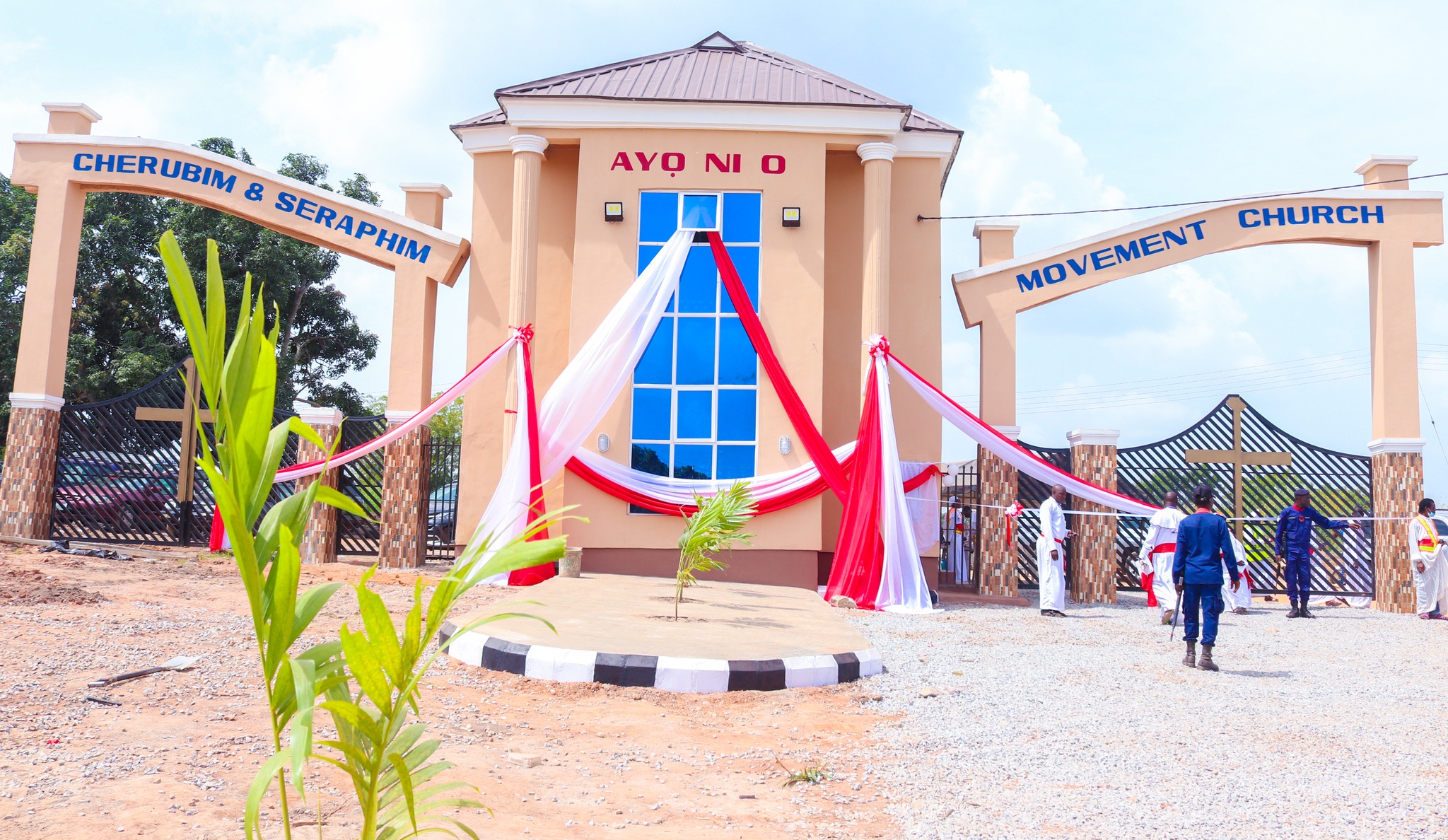
By Adedapo Adesanya
The Cherubim and Seraphim Movement Church Worldwide, Ayo Ni O, has confirmed the release and safe return of 151 of its members abducted from Iburu community in Kajuru Local Government Area of Kaduna State.
The abduction, which affected about 177 people, occurred on January 18, 2026. It was initially denied by the Nigeria Police Force and other government agencies, but was later confirmed.
In a statement issued by the Conference Secretary General of the church, Mr Anthony Olusesan Samaiye, it was disclosed that the release of the abducted persons was confirmed through reports from its liaison officers in Kaduna.
According to the statement, Mr Emmanuel Abiodun Adewale Alogbo (JP), described the release as a victory for faith, prayer and dialogue, noting that the breakthrough followed an emergency visit to Kaduna by its leadership and a series of high-level engagements aimed at securing the freedom of the abducted worshippers.
The Cherubim and Seraphim Church expressed gratitude to the Kaduna State government, particularly Governor Uba Sani, for what it described as his commitment to dialogue and the coordination of state resources that contributed to the successful outcome.
Special appreciation was also extended to the Governor’s Chief of Staff, Mr Sani Liman Kila, and the Senior Special Assistant on Religious Affairs (Christian Matters), Mr Ishaya Jangado, for facilitating engagement between the church and the state government.
The church noted that the incident demonstrated the importance of cooperation between religious leaders and government authorities in addressing security challenges and protecting citizens.
It also acknowledged prayers and support from the Christian Association of Nigeria (CAN), the Organisation of African Instituted Churches (OAIC), the international community and Christians worldwide.
While celebrating the release, the church said it was mindful of the trauma experienced by the victims and disclosed that its welfare and medical teams had been mobilised to provide psychosocial support and care to the affected members and their families.
The church called for sustained peace in Kaduna State and across Nigeria, urging authorities to continue efforts to ensure the safety of all citizens, regardless of religious affiliation.
General
2027 Elections: I Won’t be Vice Presidential Candidate—Peter Obi Insists
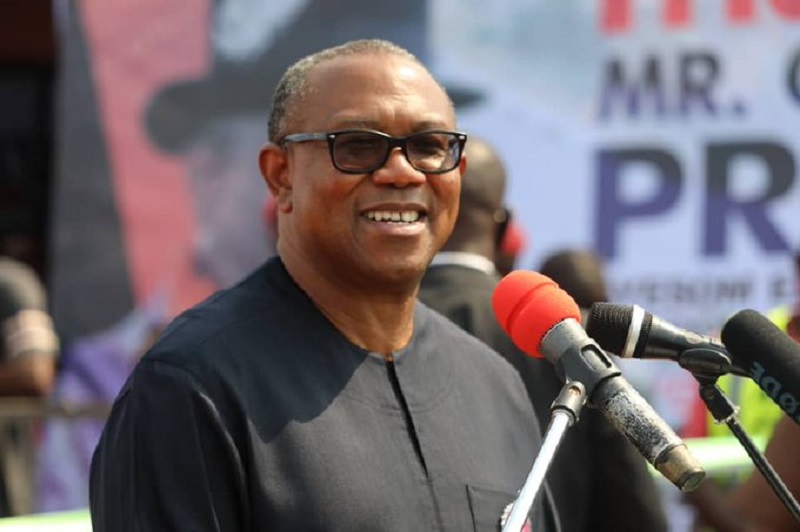
By Adedapo Adesanya
As activities for the 2027 general elections begin to take shape, the former presidential candidate of the Labour Party in the 2023 presidential poll, Mr Peter Obi, has again ruled out the possibility of contesting as a vice presidential candidate next year, saying he is contesting to be on the ballot.
Speaking ahead of the Abuja Municipal Area Council (AMAC) election in the Federal Capital Territory, he said, “You see this coming election, support us in AMAC; it will help me. Your support in AMAC is critical to our journey. I am involved and contesting the coming election as number one. When I come back, you will see. I assure you.”
Mr Obi vied for the 2023 presidency on the LP platform, emerging third overall behind Mr Atiku Abubakar and President Bola Tinubu.
In December 2025, he defected to the African Democratic Congress (ADC), where his teeming supporters popularly known as Obidients have urged him to only pursue the presidential ticket.
Mr Abubakar, who chose Mr Obi as his vice presidential candidate in the 2019 polls, is also a member of the ADC. The men finished in second and third places, respectively in the last presidential election, which President Tinubu won with 37 per cent of the votes.
Speaking at the campaign venue, Mr Obi emphasised to his supporters the importance of backing the ADC candidate in the AMAC election, noting that their support at the grassroots would go a long way in bolstering his national political journey.
The ADC coalition includes many former allies of Mr Tinubu, including Mr Nasir El Rufai, the former governor of Kaduna State; Mr David Mark, a former Senate President who is serving as the National Chairman of the party, and Mr Rauf Aregbesola, a former Osun Governor and currently the National Secretary of ADC.
The party will be hoping to emulate the success of the ruling All Progressives Congress (APC), which was formed by an alliance of opposition politicians (including Mr Abubakar) in 2013 and caused the ouster of former President Goodluck Jonathan, the first-ever defeat of an incumbent Nigerian president in 2015.
General
CPPE Urges FG to Create Farm Price Stabilisation Plan for Food Security
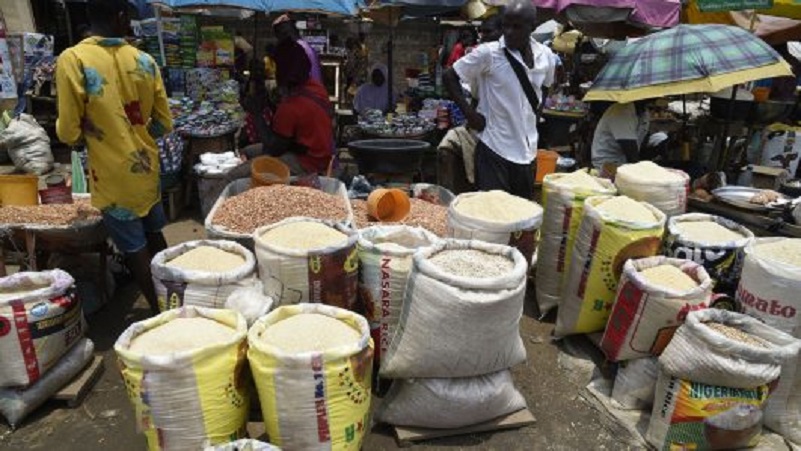
By Adedapo Adesanya
The Centre for the Promotion of Private Enterprise (CPPE) has called on the federal government to urgently establish a National Farm Price Stabilisation and Farmer Income Protection Framework to safeguard Nigeria’s long-term food security.
This was contained in a policy brief signed by the chief executive of the think tank, Mr Muda Yusuf, on Sunday.
The group warned that while recent import surges have lowered food prices to the delight of consumers, they have simultaneously inflicted severe financial losses on farmers and agricultural investors, creating what it described as “troubling trade-offs and unintended consequences.”
He advised that Nigeria cannot afford a policy regime that undermines confidence in agriculture, one of the country’s most strategic sectors and largest employers of labour.
“The welfare gains from cheaper food have been profound and should be acknowledged. However, the cost to farmers and other investors across the agricultural value chain is equally high and cannot be ignored,” Mr Yusuf stated.
The CPPE boss emphasised the urgent need to strike a sustainable balance between keeping food affordable for consumers and protecting farmers’ incomes, while safeguarding agricultural investment.
According to the policy document, recent import surges of staples such as rice, maize and soybeans have caused serious dislocations in the agricultural investment ecosystem, inflicting severe hardship on farmers and weakening production incentives.
“Although consumers have welcomed the decline in food prices, the long-term consequences are adverse: farmer incomes fall, production declines over time, investment confidence weakens, and the country risks returning to cycles of scarcity and higher prices,” the document warned.
The CPPE identified several structural factors driving recurring farm price collapses in Nigeria, beyond the immediate impact of food imports.
The think tank warned that harvest glut remains a major challenge, with many farmers harvesting the same crops within the same period, causing sudden oversupply. This is compounded by the limited availability of storage facilities, drying centres and cold-chain systems, which forces farmers to sell immediately regardless of market conditions.
The organisation said this is also affected by weak rural logistics, characterised by poor roads, insecurity, high transport costs, and limited aggregation hubs, which make it difficult to move produce efficiently from production zones to high-demand markets.
-

 Feature/OPED6 years ago
Feature/OPED6 years agoDavos was Different this year
-
Travel/Tourism9 years ago
Lagos Seals Western Lodge Hotel In Ikorodu
-

 Showbiz3 years ago
Showbiz3 years agoEstranged Lover Releases Videos of Empress Njamah Bathing
-

 Banking8 years ago
Banking8 years agoSort Codes of GTBank Branches in Nigeria
-

 Economy3 years ago
Economy3 years agoSubsidy Removal: CNG at N130 Per Litre Cheaper Than Petrol—IPMAN
-

 Banking3 years ago
Banking3 years agoSort Codes of UBA Branches in Nigeria
-

 Banking3 years ago
Banking3 years agoFirst Bank Announces Planned Downtime
-

 Sports3 years ago
Sports3 years agoHighest Paid Nigerian Footballer – How Much Do Nigerian Footballers Earn



